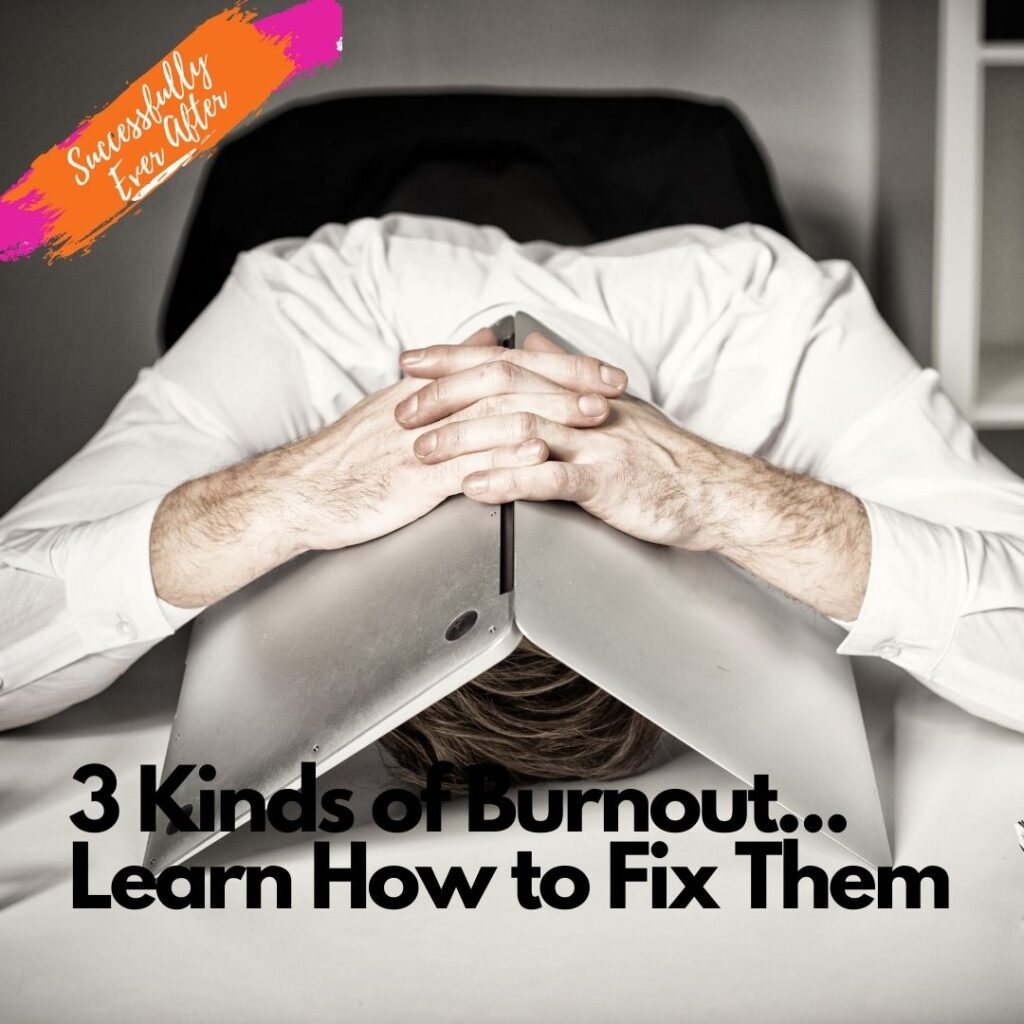
It’s natural for energy levels to fluctuate from day to day, but full-fledged burnout can undermine your happiness and career. Take a look at the different kinds of burnout and some strategies for dealing with them. Researchers at a Spanish university recently discovered at least 3 distinct subtypes of burnout. What they all have in common is the potential to leave you feeling drained and hopeless if they’re allowed to build up over time.
Of course, pursuing meaningful work is the best protection of all. While you’re searching for deeper fulfillment, these techniques will make your work days less taxing.
Coping with Overload:
This may be you if you typically push yourself to exhaustion. You may also be prone to complaining about office policies and practices that seem to hold you back.
- Set reasonable goals. Be realistic about your capacity and schedule. Calculate what it will take to complete a project before you commit. Learn to say no graciously. Anticipate what additional resources you may require and ask for them before you need them.
- Focus on solutions. Even if your conclusions are valid, chronic complaining may darken your mood and drive people away. Propose constructive alternatives when faced with a challenging situation.
- Review your accomplishments. Make a list of your significant victories and their importance. Relive the time you negotiated a great deal or hired a top performing sales agent.
- Work on your personal life. Excessive hours at the office could be a sign that you’re trying to compensate for shortcomings in other aspects of your life. Engage in spiritual practices, strengthen your relationships, and take up a hobby.
Coping with Boredom:
Maybe you feel like you’re coasting at work. People experiencing this type of burnout also tend to be vulnerable to cynicism and they try to avoid difficult issues.
- Tackle a challenge. Volunteer for a demanding assignment. Pick something that will give you a chance to acquire new knowledge and learn additional skills.
- Look on the bright side. Counter cynicism by reflecting on the positive qualities of the people and events you encounter. Remind yourself of all the wonderful things you have to be grateful for.
- Socialize more. You can find stimulation and purpose, even if your job consists of routine tasks. Just concentrate on what you can do to help others. Brighten your supervisor’s day by delivering a sincere compliment or please a customer by being extra attentive.
- Communicate directly. Train yourself to address conflicts head on. Be tactful when you say what’s on your mind.
Coping with Being Worn Out:
If you have worthy goals but find it difficult to achieve them, this could describe you. Ask yourself if your motivation sinks when you encounter barriers and stress.
- Plan ahead. Take the long view when you’re starting a project. Picture the typical obstacles that you’ll likely meet along the way and be prepared to address them. Figure out who you can contact for expert advice or where you can locate additional financing.
- Develop relaxation techniques. Stress is part of most jobs. Rely on methods that dissolve tension for you. Listen to instrumental music, pet your dog, or sign up for yoga classes.
- Renew your motivation. Give yourself periodic reminders of why your work is important to you. You may discover multiple sources of gratification, including supporting your family and contributing to society.
Before you consider handing in your resignation, spot your personal brand of burnout and overcome it. Taking constructive action will make your job less stressful and more satisfying. If you want more tools to help you navigate your career journey, check out these:
- Subscribe to my YouTube channel and watch quick tips to help your job search or make yourself promotable.
- Join my private Successfully Ever After Facebook Group for trainings and information designed for success-seekers.
- Download my audio books: Get Noticed, Get Hired or When In Doubt, Delete It!
- Join my membership site The Career Accelerator and fast track your career.


